A job interview is a crucial step in the application process. Here, the employer evaluates not only your professional qualifications, but also your personal traits, communication skills, and ability to work in a team. That's why thorough preparation for this step is enormously important. Well-preparedness helps reduce stress, boost self-confidence, and present your strengths in the best possible way. From carefully studying the company information to practicing answers to typical questions - every aspect of preparation matters.
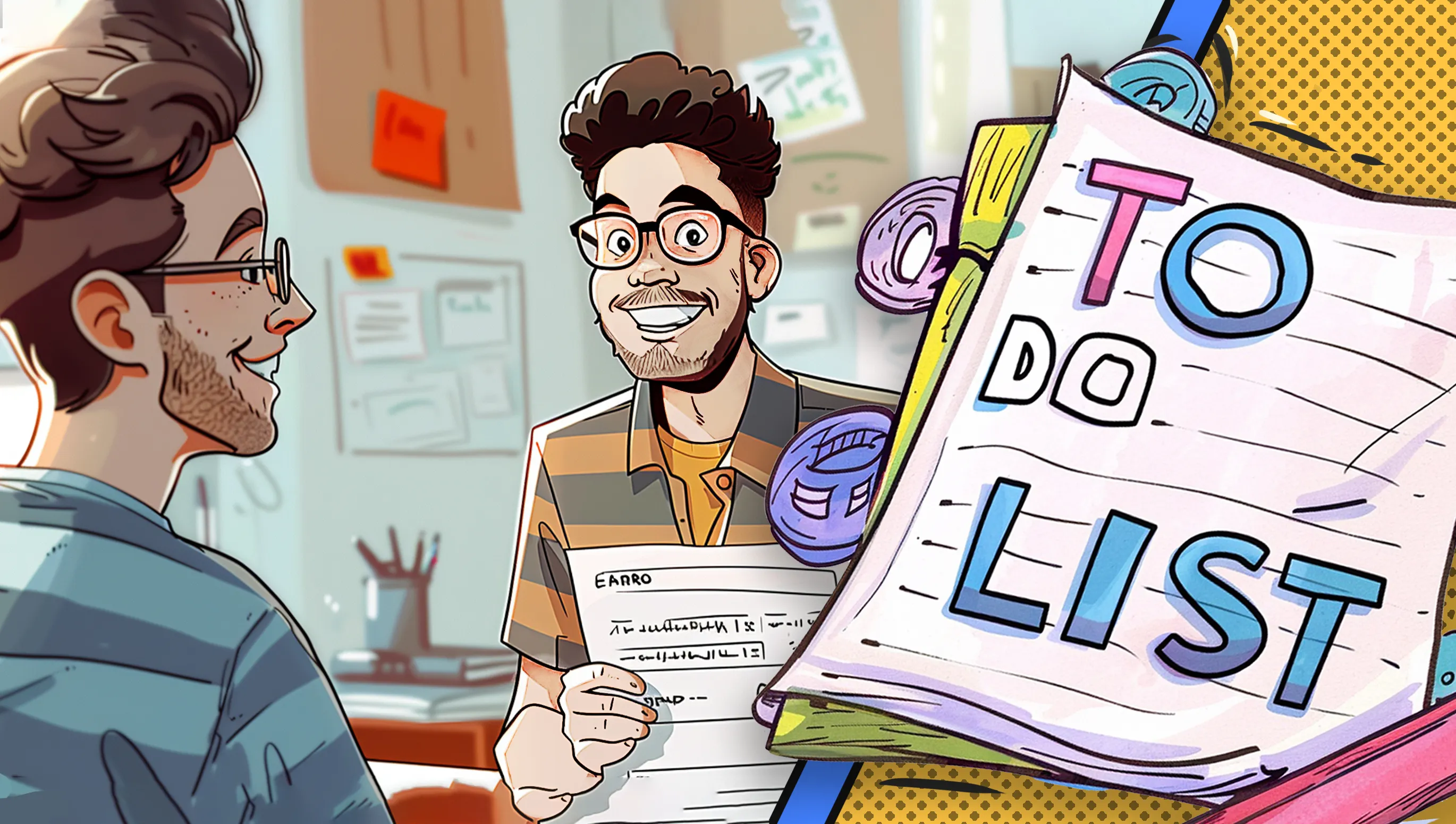
In this article, you will find practical tips to help you prepare optimally for the job interview. We will go through the key points you should focus on and share recommendations that increase your chances of a successful interview. I will assist you in impressing the employer with your preparation and professionalism!
Universal plan for preparing for the interview with a checklist
Strange as it may sound, there is a method for preparing for interviews based on a checklist. What is the difference between a problem and a task? If we don't have a plan to solve it, it's a problem. However, if we have an action plan, it becomes a task. The same applies to preparing for a job interview.
Here is a universal plan for preparing for a job interview. Print it out and simply check off each preparation step you complete, getting ready to conquer the new job! After this list, you will find some theory and tips to delve deeper into the subject. Read everything and then teach it to others!
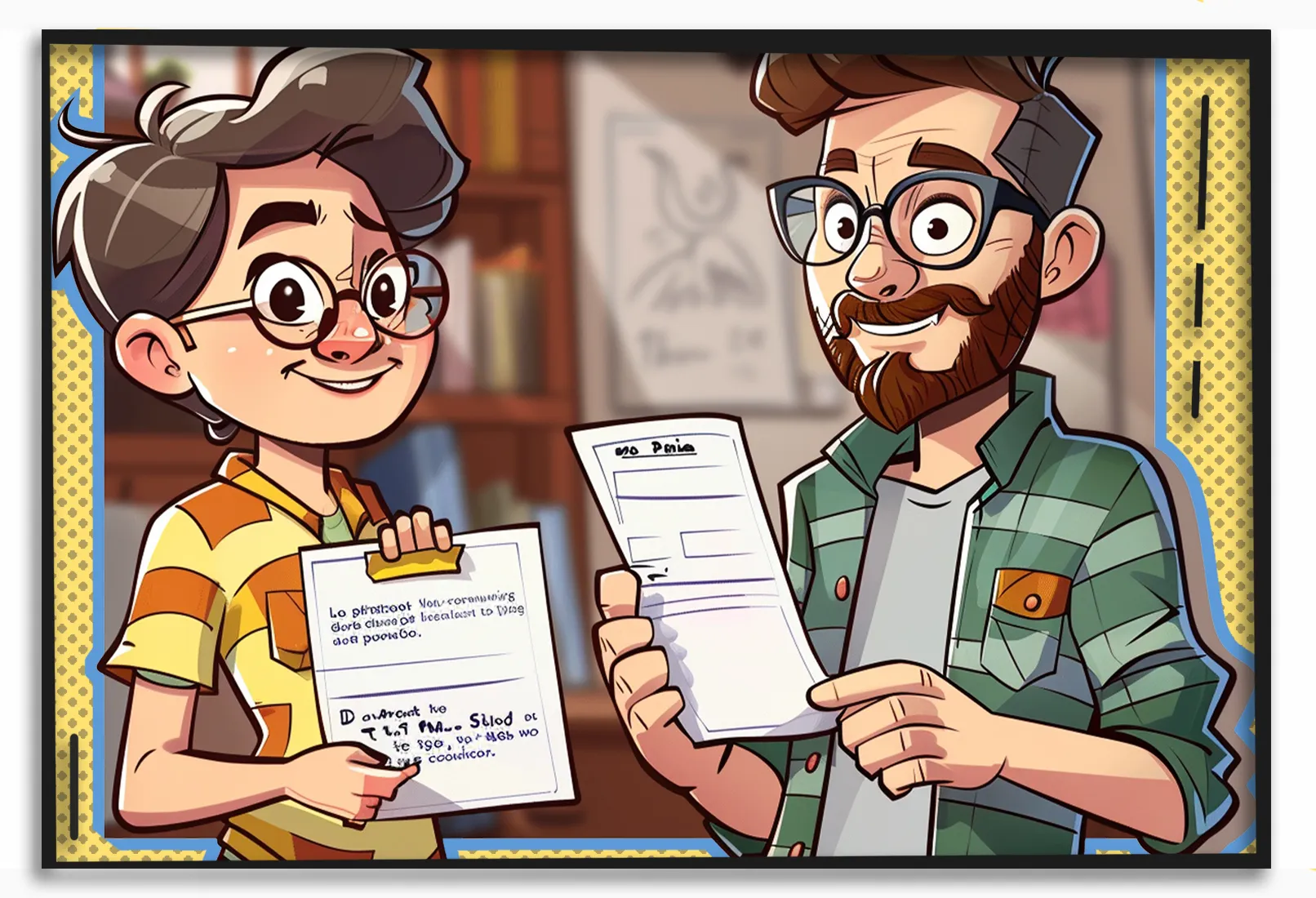
Here is a detailed example of creating such a list
Research about the Company:
- Checked the company's website and familiarized yourself with its history, mission, and values.
- Studied the company's products or services.
- Read news and recent successes of the company.
Analysis of the Job Posting:
- Thoroughly analyzed the job description.
- Identified key requirements and necessary skills.
- Matched own experience and skills with the job requirements.
Preparing Resume and Cover Letter:
- Updated resume, focusing on relevant experience and skills.
- Written a personalized cover letter for the specific position.
- Printed multiple copies of resume and cover letter.
Practicing Answers to Questions:
- Prepared answers to typical interview questions.
- Practiced answers in front of a mirror or with a friend.
- Used the STAR method to structure the answers.
Preparing Portfolio:
- Collected the best work samples in printed or digital form.
- Prepared a description for each sample to explain during the interview.
Evidence of Qualifications:
- Copied certificates, diplomas, and other documents and prepared them.
- Printed copies to show during the interview.
Recommendation Letters:
- Prepared and printed recommendation letters from previous employers or colleagues.
- Prepared contacts to provide references upon request.
List of Questions for the Employer:
- Compiled a list of questions about the company, the role, or the team.
- Ensured that the questions show interest and knowledge about the company.
Notebook and Pen:
- Prepared a notebook and pen for notes during the interview.
- Checked if the pen writes.
Contact Information:
- Noted the contact details of the person you scheduled the interview with.
- Wrote down the address and details of the interview location.
Identification:
- Checked the presence of a passport or ID.
Clothing:
- Prepared appropriate business attire in advance.
- Checked if the clothing is clean and ironed.
- Selected shoes that match the business style and are comfortable.
Physical Preparation and Relaxation:
- Performed light physical exercises or yoga to reduce stress.
- Engaged in meditation or breathing exercises for relaxation.
Preparation for the Journey:
- Checked the route to the interview location.
- Calculated travel time considering possible delays.
- Prepared alternative routes for unforeseen circumstances.
Personal Items:
- Brought a small water bottle to stay hydrated.
- Prepared a light snack in case of long waiting times.
Final Check:
- Reviewed checklist and ensured all tasks are completed.
- Double-checked if all documents and items are present.
Fear and Stress in Job Interviews
Approach the job interview with a relaxed mindset. If you are well prepared and suited for the position, you will get along well with your future boss and secure the job. If not, then it simply wasn't the right position for you. There are nearly 8 billion people on Earth, and almost all of them – except children and seniors – work. Therefore, go to the interview with a light heart. See it as an opportunity to meet interesting people. They are not hostile towards you, as they need you. Otherwise, they would not have invited you. The interview is just to find out if the job and you are a good match.
At the end of the day, you are looking for a job, but you should not desperately dive into it. You will spend a third of your life there and invest part of your energy and time to achieve results and become a professional. Hence, it is important to prepare diligently. Preparation is also work, even if you are not paid for it. But when you go to the interview, be calm, balanced, and just be yourself. Enjoy the opportunity to meet interesting and successful people.
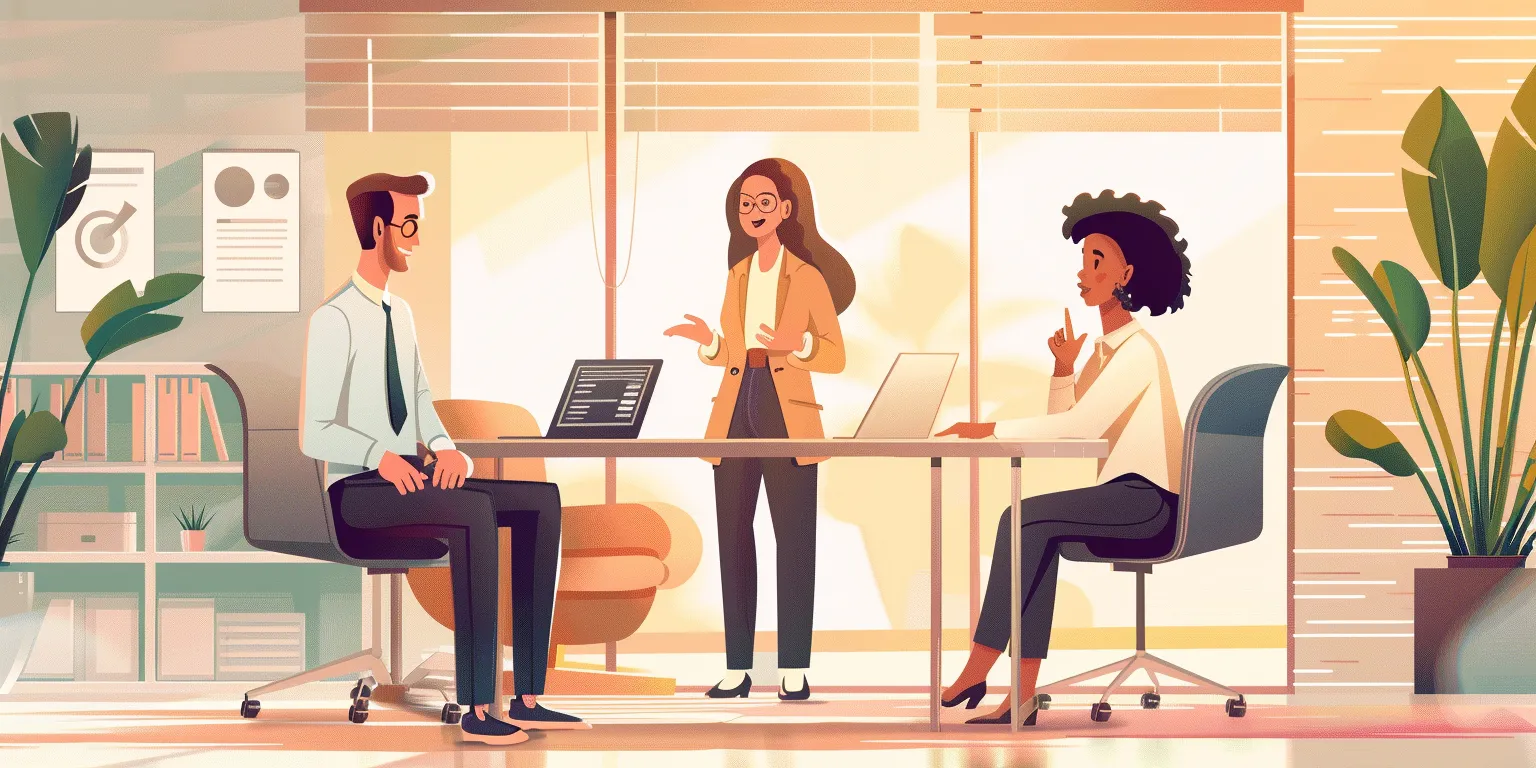
Job Interview: Types and Their Characteristics
To properly prepare for a job interview, it is important to understand the different types of interviews. Depending on the company, position, and field of work, job interviews and their preparation may vary. Here are the most common types of job interviews:
Phone Interview: Often the first step in the hiring process. It is a quick way to assess the candidate's basic qualifications, interest in the position, and next steps. A phone interview usually lasts 15-30 minutes and covers basic questions about experience, skills, and motivation. It is usually conducted by an HR manager or recruiter.
Video Interview: This type is becoming increasingly popular, especially in times of remote work. Platforms like Zoom, Skype, Teams, etc., provide convenience for both parties, especially for remote positions. For a successful video interview, you need a stable internet connection and appropriate equipment (laptop with webcam, smartphone or tablet, suitable software).
Face-to-Face Interview: Traditionally held at the company's office. It can be a one-on-one interview or a panel interview. It allows for a detailed evaluation of the candidate's experiences and skills and offers the opportunity to get to know the working environment.
Group Interview: This type of interview may involve multiple candidates or multiple interviewers at the same time. It is used to assess communication and leadership skills in a group setting. During the interview, you as a candidate may be given group tasks and exercises to evaluate your ability to work in a team and interact with unfamiliar individuals.
Behavioral Interview: Focuses on evaluating the candidate's behavior in different situations based on past experiences. Questions like "Tell me about a time when you..." are asked, and the STAR method is used (Situation, Task, Action, Result).
- Situation: You describe a specific situation or context.
- Task: You explain the concrete task or challenge.
- Action: You describe the specific actions you took.
- Result: You describe the achieved results.
Case Interview: Common in consulting firms, where the candidate is required to solve a specific business case study or task. This type of interview is used to assess analytical and problem-solving skills, as well as understanding of business processes. Sometimes, a presentation of solutions may also be requested.
Stress Interview: The aim is to assess how the candidate reacts to stressful situations and pressure. It may include provocative or difficult questions. Simulating difficult situations is often used for positions with high stress levels.
Every type of job interview has its own advantages and disadvantages, and companies often combine different methods to achieve the best results in selecting candidates. When you are invited to a job interview, try to find out what type it is. This will help you prepare better and make a good impression. Do not hesitate to ask. Such a question positions you as a candidate capable of communicating qualitatively to achieve the best result, and can set you apart from others.
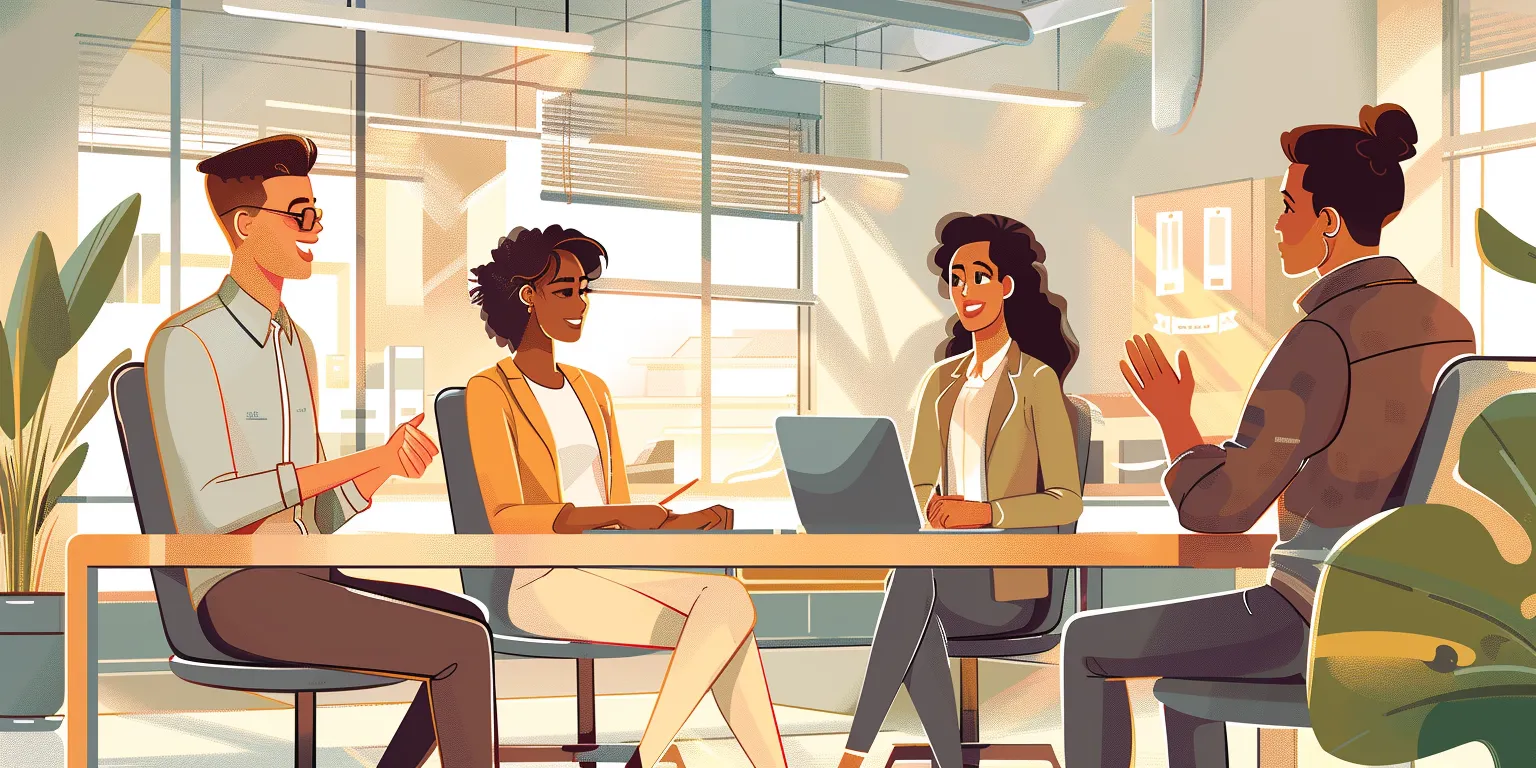
What does a typical job interview look like?
A job interview is an important step in the hiring process and consists of several essential phases. Each phase has its own peculiarities and requirements that you should pay attention to during preparation.
- Preparation for the job interview: Inform yourself about the history, mission, values, and culture of the company. Study the products or services the company offers. Read the job description carefully and identify the key requirements and skills needed. Update your resume by focusing on relevant experiences and skills. Your cover letter should be tailored to the specific company. Prepare answers to frequently asked questions, e.g. about your strengths and weaknesses, work experiences, and reasons for changing jobs. Conduct some practice interviews with friends or use online resources for preparation.
- Arriving for the job interview: Be on time to avoid delays. This demonstrates your reliability and organizational skills. Choose appropriate clothing that matches the company's culture. Typically, this is a business or business-casual style.
- Start of the job interview: Greet the interviewer with a confident and friendly tone. Observe etiquette, such as a firm handshake and direct eye contact. The interviewer usually starts with a brief description of the interview process and the company.
- Main part of the job interview: Be prepared to briefly discuss your professional background, key achievements, and skills. The interviewer will ask questions about your previous workplaces, tasks, and accomplishments. Use the STAR method to structure your answers. Don't forget responses to behavioral questions aimed at identifying your soft skills like communication, teamwork, and conflict resolution. For technical positions, questions about your technical knowledge and skills may be asked, both theoretical questions and practical tasks.
- Conclusion of the job interview: Prepare some questions showing your interest in the company and the position. For example, you can ask about the company's development prospects, the specifics of work processes, or the team. In this part, the interviewer usually informs about the next steps in the selection process and the expected feedback.
- After the job interview: Send a short thank-you email to the interviewer for the opportunity to conduct the job interview. This leaves a positive impression and reminds them of you.
Dressing for the job interview: What to wear and what to avoid
The clothing for a job interview plays an important role as it gives a first impression of you as a candidate. In Germany, there are specific standards and requirements for business attire that you should consider when going for a job interview.
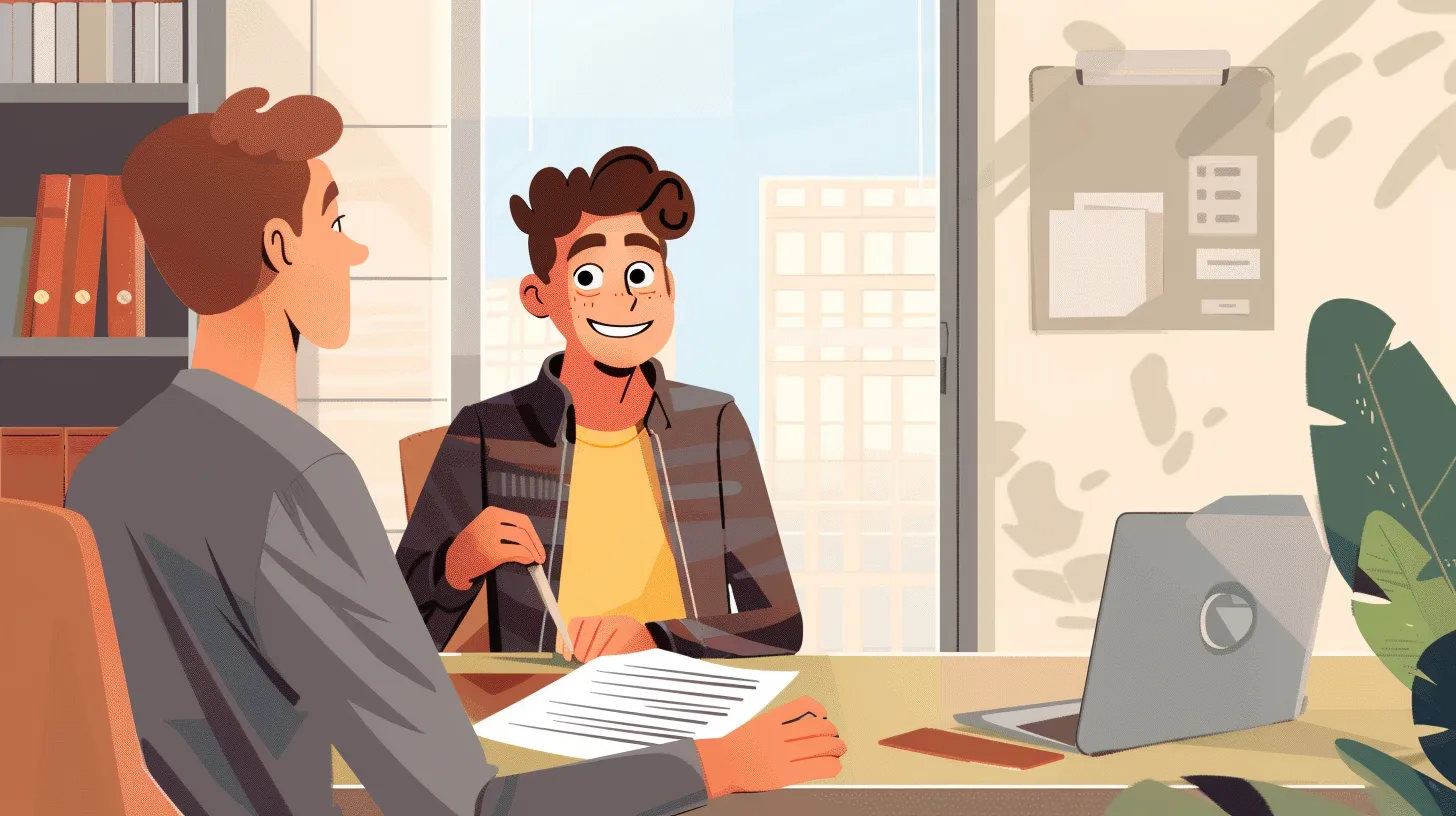
What to wear for a job interview:
A classic business suit is the best choice. For men, a dark suit (black, navy, or gray) with a light shirt and a tie is suitable. Choosing classic colors shows professionalism and seriousness. Women can wear a pantsuit or a skirt suit with a blouse in neutral colors. A business dress that reaches the knee or slightly below is also appropriate.
Classic leather shoes in black or brown are ideal for men. It's important that the shoes are clean and well-maintained. Women should choose closed-toe shoes with low heels or flat shoes like classic ballet flats.
Pick a modest selection of accessories. Men should not wear too many accessories; a watch and a classic belt are sufficient. Avoid an excessive number of jewelry pieces. Women should opt for subtle jewelry like small earrings or a bracelet. These should not be too flashy to avoid distractions.
The hairstyle should be neat and tidy. Hair should be kept away from the face. Women should focus on natural and subtle makeup.
All clothing items should be clean, ironed, and free of stains. The shoes should also be clean and well-maintained.
What not to wear for a job interview:
Avoid bright and inappropriate clothing. Bright colors can be distracting. Do not wear sportswear, jeans, t-shirts, or other casual clothing items.
Your outfit should neither be too revealing nor too tight. This applies to both men and women. Skirts and dresses should have an appropriate length.
Avoid an excessive number of accessories. Too much jewelry can create an impression of unprofessionalism or distraction.
Sandals and open shoes are inappropriate. Shoes should be closed. Sandals, flip-flops, or other open-toed shoes are not suitable for a job interview.
Make sure you do not wear strong perfumes or heavily scented clothing. It is also important that the clothing is not worn out or old.
The choice of the right clothing for a job interview is an important preparation step. As a candidate, you should appear professional and confident to make a positive first impression. Remember that cleanliness, restraint, and adherence to business style are the key factors for a successful appearance.
What to Bring to a Job Interview
Preparing for a job interview involves not only wearing the right clothing but also having the necessary items with you. These will help you leave a professional impression and be prepared for any inquiries from the interviewer. Here is a list of things to bring to a job interview:
- Copies of the resume and cover letter: Always bring multiple copies of your resume and cover letter. This shows your preparation and gives you the opportunity to provide an additional copy if needed.
- Portfolio: If your work is creative or project-based, don't forget to bring a portfolio. This can be a printed version or a tablet with digital copies. Include the best examples of your work that demonstrate your skills and achievements.
- Notebook and pen: Write down important details or questions that arise during preparation and the job interview. This also allows you to take notes during the conversation and capture important points.
- List of questions for the employer: Prepare a list of questions about the company, the role, or the team. This shows your interest and preparation for the interview. For example, you can ask about company culture, development opportunities, or details about the position's tasks.
- Documents confirming qualifications: Bring copies of certificates, diplomas, and other documents confirming your qualifications. These may be needed for additional checks or discussions during the interview.
- Letters of recommendation: If you have recommendation letters from previous employers or colleagues, bring them along. They can strengthen your position and provide additional information about your professional qualities.
- Identification: Bring an ID, driver's license, or passport. This may be required to access the company's office or to verify your identity during registration.
- Contact information: Note down the contact information of the person with whom you scheduled the job interview. This can be useful in case of questions or delays while en route.
- Notebook or document organizer: Use a folder or organizer bag to keep all documents organized and neat. This also helps to avoid losing important papers.
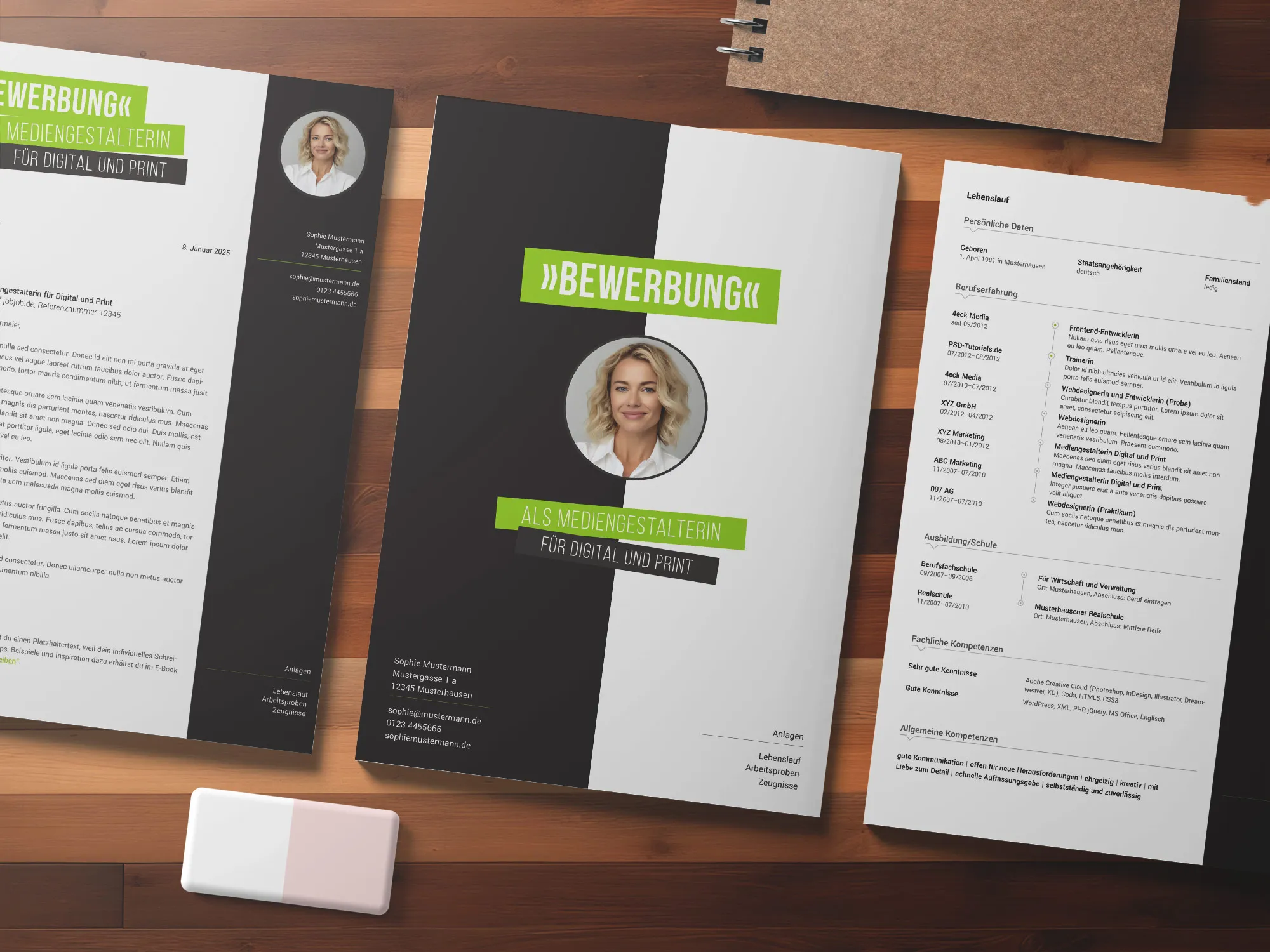
Your preparation for a job interview can make the crucial difference. To prepare yourself thoroughly, also check out our other helpful articles. They provide valuable tips and strategies to help you shine in the job interview:
Job Interview Questions: Best Preparation for a Job Interview
In this article, you will find a comprehensive list of the most common questions you may encounter in a job interview. With our tips, you will be optimally prepared and able to answer each question confidently.
Strengths and Weaknesses in a Job Interview
Here you will learn how to convincingly present your strengths and weaknesses. Discover how to turn your weaknesses into positive traits and effectively emphasize your strengths.
Use these articles to prepare optimally for your next job interview and convince with confidence. Because good preparation is the key to success!
Preparation for the job interview with a checklist: Theory, tips, examples
From Vitalii Shynakov
